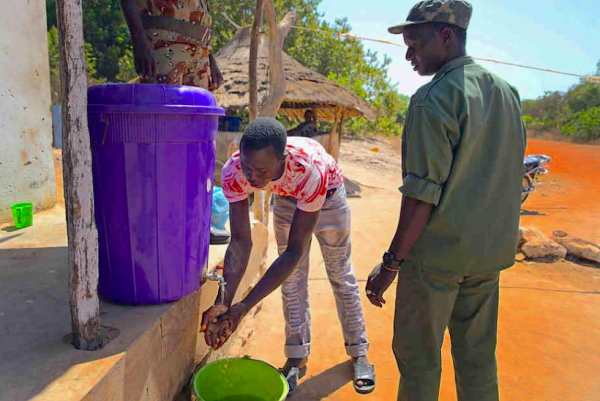West Africa may even reach 1,000 deaths from Ebola this weekend. That’s just a guess, but not a bad guess, considering the Olympic record of this hemorrhagic virus. At the beginning of July nearly 500 people had died from the disease; two weeks later, the numbers had increased by 20%,; and the most recent confirmed figure, less than 10 days into August, is just short of 1000.
The latest outbreak started in spring 2014 and has plagued four African nations so far: Guinea, Sierra Leone, Liberia, and Nigeria. It causes symptoms ranging from flu-like pains to internal and external bleeding caused by organ failure. Death is the usual result for over half of Ebola sufferers.
There are no registered medicines or vaccines against Ebola now, but several experimental options are currently under development and being rushed through the pipeline. Until other protocols can be established, the preferred modes of treatment are patient isolation, hydration, other supportive therapies, and time for patients to recover from the disease through their bodies’ own defenses. The World Health Organization says we may expect pharmaceutical advances by 2015.
Quarantine is usually necessary, and it can often be successful on an individual or local basis. Healthcare workers must be 100% insulated in protective clothing, including double gloves and boots, goggles and hood, and an impermeable outer suit. The most effective precautions are disinfectant handwashing, cleaning every potentially contacted surface with either weak or strong chlorine bleach/water solutions, and either burial below six feet or incineration of compromised materials. Unfortunately, West Africa has limited access to high-tech enhancements of these methods.
Dr. Tom Frieden, the director of the US Centers for Disease Control and Prevention, told Congress that stemming the Ebola crisis will be a “long and hard fight” and said it would take at least three to six months to end the outbreak (best-case scenario).
in an exclusive interview about the Ebola situation earlier today, I spoke with Dr. Vincent Silenzio, a public health specialist and associate professor of both family medicine and psychiatry from the University of Rochester Medical Center School of Medicine:
“The current Ebola outbreak underscores two important perennial challenges. The first is that health care systems in west Africa are undertrained and overstretched. This is a well-known issue and an area where impressive progress has been made. But the challenge has been much larger than the infrastructure we’ve helped develop so far can handle.”
WHO director-general Dr. Margaret Chan has appealed to the international community for help, saying, “Countries affected to date simply do not have the capacity to manage an outbreak of this size and complexity on their own.” (See my earlier article in Digital Journal for a summary of recent events.)
Physicians and other health workers fighting the disease say the main thing west Africa needs is “boots on the ground.” Protective clothing and lab facilities are second on the list. Medecins Sans Frontieres (Doctors Without Borders) has praised WHO for taking Ebola seriously and declaring it an international public health emergency, but its director of operations, Dr. Bart Janssens, says that the response has been too slow. He calls for immediate action and “a massive medical, epidemiological and public health response… to save lives and reverse the course of the epidemic.”
Dr. Silenzio agrees and finds the second challenge closely related to the first.
“Despite the very significant and ongoing efforts of WHO, CDC, and other nongovernmental organizations and nonprofits on the ground, the international response to the current outbreak (in terms of both personnel and material resources necessary) has been much smaller than what has been needed.”
The infection, treatment, and transportation of gravely ill health care workers to the US and Europe has brought the situation to widespread popular knowledge and concern. “The bottom line,” says Dr. Silenzio, “is that in a fully globalized world, we can not fully protect ourselves or others without stopping the current outbreak on the ground in West Africa.”
Most partially informed observers (that’s most of us, by the way) don’t know the details and lack enough background knowledge to make informed judgments. We are thus highly susceptible to false rumors and are very unnecessarily worried about a chance of infection, which is today extremely remote in non-central Africa and on other continents.
Above all, our tone should be not to panic either ourselves or others. Dr. Keiji Fukuda, WHO’s assistant director for health security, told CNN recently, “Perhaps one of the most important factors contributing to this is fear and misinformation.”
Panic is both preventable and the worst of all possible enemies. The mantras should be to stay aware of what legitimate health authorities are advising, and do what you can to support both front-line caregivers and credible organized efforts for relief.
Silenzio’s personal conclusion: “As well as confining Ebola being the best strategy for success, it is also the moral and right thing for us to do.”
